Publications
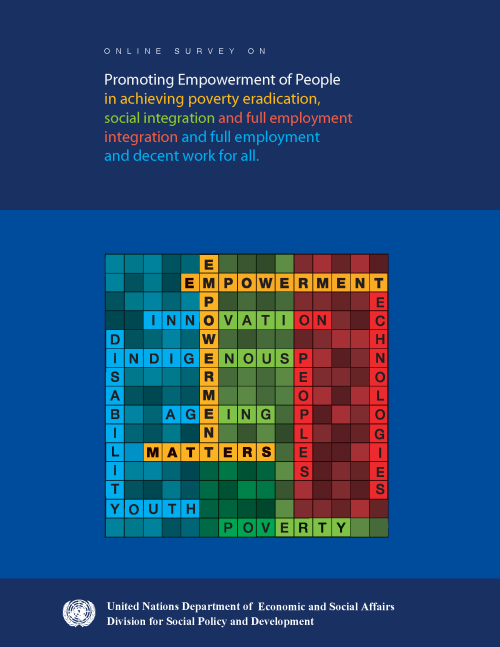
UNDESA-DSPD, from 8 August to 5 September 2012, conducted a global online survey to gather inputs for consideration by the 51st session of the Commission for Social Development (CSocD), which took place from 6 to 15 February 2013.
The survey enabled the public worldwide to respond to a set of questions that were related to the priority theme of CSocD on “Promoting empowerment of people in achieving poverty eradication, social integration and full employment and decent work for all”.
The responses collected and selected from the first question “Empowerment: What does it mean to you?” was published in a separate booklet.
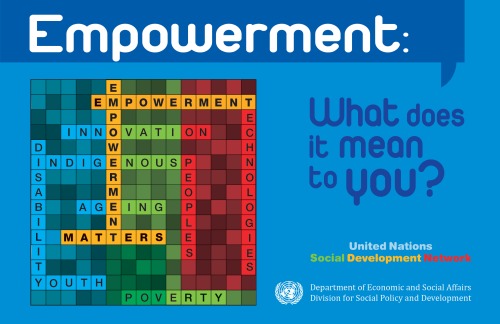
The “Definitions of Empowerment” represents a collaborative effort, made possible by the answers received from people all over the world on the Empowerment theme. Their invaluable contributions were essential for the preparation of the Empowerment Publication.
In order to collect people’s ideas and experiences, the Division for Social Policy and Development (DSPD) of UNDESA launched an on-line survey on “Promoting Empowerment of People”.
We were glad to receive tens and tens of responses from young individuals, persons with disabilities, older persons, and people working for various institutions and organizations committed to social development issues. Their keen interest…
“The increasing role of e-government in promoting inclusive and participatory development has gone hand-in-hand with the growing demands for transparency and accountability in all regions of the world,” said Sha Zukang, UN DESA Under-Secretary-General in the newly released United Nations E-government Survey 2012.
The survey, prepared by UN DESA’s Division for Public Administration and Development Management, assesses Member States’ government web portals with a focus on the provision of e-information and e-services; these services include interactive, transactional, and e-participation features that connect governments and citizens.
Member States are ranked in accordance…
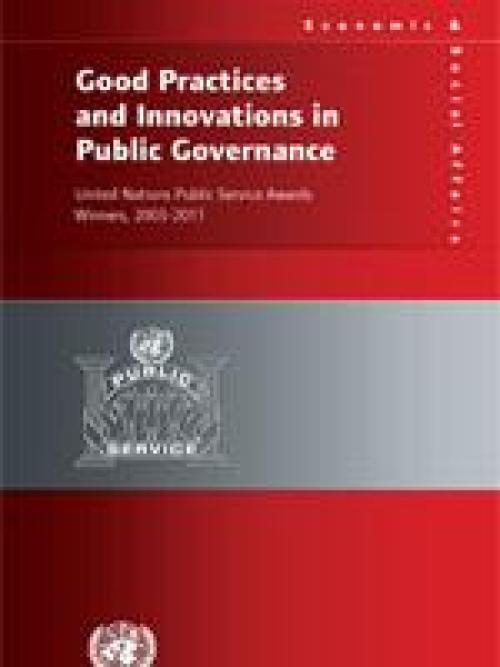
This publication provides an overview of 145 successful innovations in governance and public administration from 50 countries that received the United Nations Public Service Awards, which is the most prestigious international recognition of excellence in public service.
The purpose of the series is to disseminate, through descriptive case studies, information about innovative practices by:
(i) looking at the problem that led to an innovation;
(ii) the solution that was designed and implemented to respond to the specific challenge;
(iii) the actors and steps involved in the innovation process, and
(iv) lessons learned. Learning more about how public…
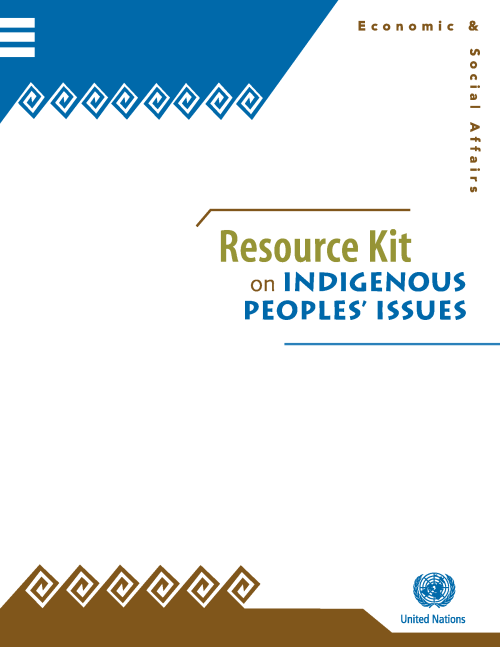
SPFII, in cooperation with ILO, UNICEF, UNDP, UNFPA and SCBD has published the Resource Kit on Indigenous Peoples Issues. The Kit is aimed UN Country Teams (UNCTs), and other development agents, providing them with guidance as to how to engage indigenous peoples and include their perspectives in development processes.
The World e-Parliament Report 2010 examines how global and regional inter-parliamentary cooperation can exploit synergies among nations to help parliaments in developing countries bridge the digital divide by overcoming the barriers of limited resources and technical constraints. It proposes to the parliamentary and donor communities a shared framework for e-parliament based on strategic goals that serve democracy, good governance, and the attainment of the internationally agreed development goals.
The 2010 United Nations e-Government Survey: Leveraging e-government at a time of financial and economic crisis was completed in December 2009 and launched in early 2010. The report presented various roles for e-government in addressing the ongoing world financial and economic crisis. The public trust that is gained through transparency can be further enhanced through the free sharing of government data based on open standards.
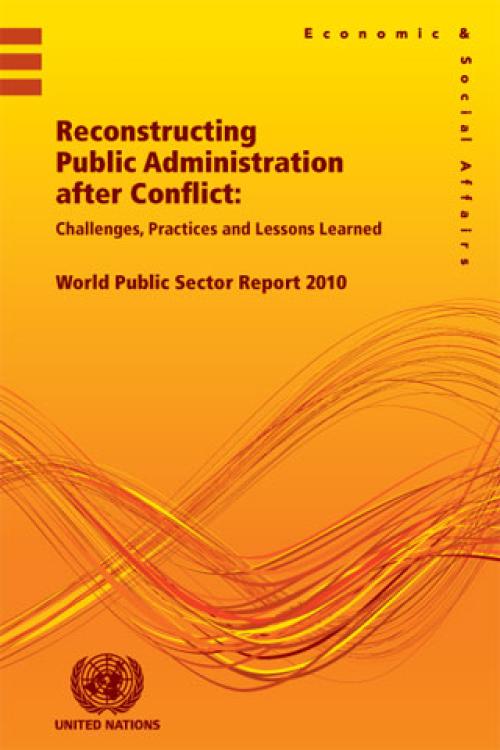
Reconstructing Public Administration after Conflict
The 2010 World Public Sector Report brings to the fore a very critical issue - how to reconstruct public administration in post-conflict situations so as to enable it to promote peace and development in countries that have been affected by civil war and destruction. It is a question that has remained unresolved for decades and has brought poverty, despair, and death to people in many corners of the world. The Report shows that no progress can be made in promoting peace, development and protection of human rights unless appropriate governance and public administration institutions are established, leadership and human resources…
There are over 370 million indigenous people in some 90 countries, living in all regions of the world. The situation of indigenous peoples in many parts of the world is critical today. Poverty rates are significantly higher among indigenous peoples compared to other groups. While they constitute 5 per cent of the world's population, they are 15 per cent of the world's poor. Most indicators of well-being show that indigenous peoples suffer disproportinately.
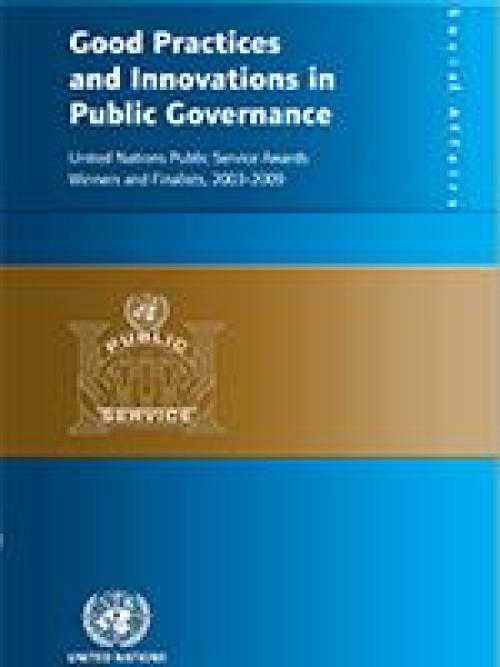
This publication provides an overview of 85 successful innovations in governance and public administration from 40 countries that received the United Nations Public Service Awards, which is the most prestigious international recognition of excellence in public service. The purpose of this book is to disseminate, through descriptive case studies, information about innovative practices by looking at the problem that led to an innovation; the solution that was designed and implemented to respond to the specific challenge; the actors and steps involved in the innovation process, and lessons learned. Learning more about how public institutions from around the world have solved difficult…
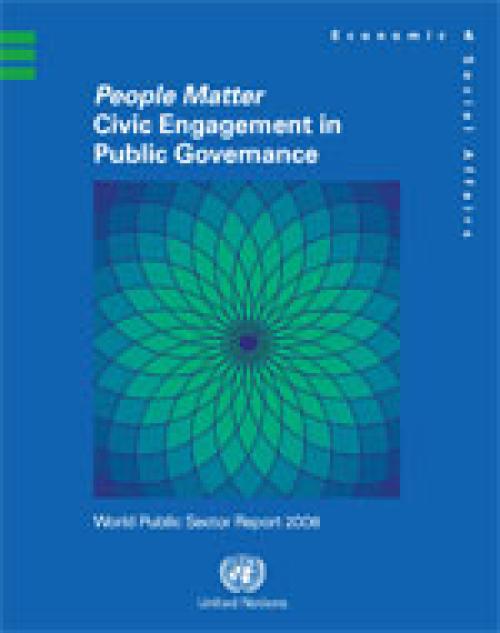
People Matter: Civic Engagement in Public Governance
The 2008 World Public Sector Report, People Matter: Civic Engagement in Public Governance, highlights the importance of civic engagement in public governance and by profiling several case studies, demonstrates how such practices gain the capacity to strengthen governance, make it more transparent and accountable and most importantly, contribute to developmental outcomes that are more sustainable, equitable and just. The Report also highlights several challenges and cautions that adequate attention must be given to the issues of power relations, institutional capacities of the government as well as the civil society organizations…
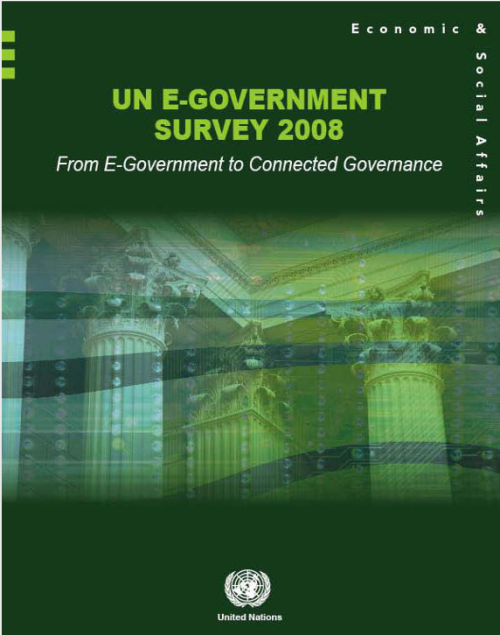
The UN E-Government Survey 2008: From E-Government to Connected Governance assesses the E-Government Development of the 192 Member States of the UN according to a quantitative composite index of e-readiness based on website assessment, telecommunication infrastructure, and human resource endowment. ICTs can help reinvent government in such a way that existing institutional arrangements can be restructured and new innovative arrangements can flourish, paving the way for a transformed government.
The focus of the report this year, in Part II, is e-government initiatives directed at improving operational efficiency through the integration of back-office functions. Whilst such…
 Welcome to the United Nations
Welcome to the United Nations